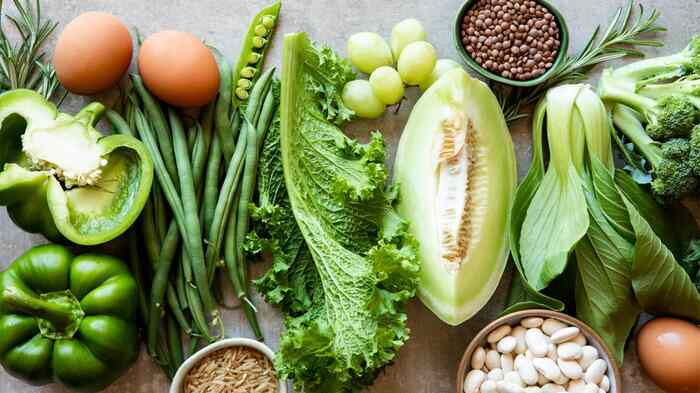
Whether you are already vegan or vegetarian or just curious about learning more about the two diets, this article will help you better understand both lifestyles so that you can make an informed decision on how to eat healthily without compromising animal welfare in any way.
What is a vegan?
A vegan is an individual who avoids consuming any products that are derived from animals. Vegans abstain from eating beef, poultry, fish, seafood, dairy, eggs, honey, or gelatin. Beyond avoiding food products associated with animal exploitation, some vegans choose not to wear clothing made of animal skin or fur or items crafted from leather.
Additionally, vegans may opt not to purchase non-food items like fuzzy blankets and furniture made by products such as wool and feathers. There is also a focus on avoiding products that have been tested on animals. The vegan lifestyle is often viewed as one of ethical eating and intentional buying to reduce harm to animals in all forms.
What is a vegetarian?
A vegetarian has chosen to forego the consumption of meat, poultry, and seafood. Many vegetarians will also avoid the consumption of by-products derived from animals, including gelatin and honey. A vegetarian lifestyle can come in wide varieties, ranging from a diet that simply excludes the consumption of animal flesh to a lifestyle that strives to avoid supporting animal exploitation or cruelty.
Becoming a vegetarian can be motivated by personal health benefits, environmental concerns, ethical considerations, or religious beliefs. Small dietary changes can still profoundly impact health and the environment, making the vegetarian lifestyle an attractive choice for many.
What are the main differences between the two?
The main difference is the avoidance of animal by-products. Vegans abstain entirely from any products that have been derived from animals, which include dairy, eggs, and honey. The vegan lifestyle also avoids animal products in clothing and non-food items to reduce animal cruelty.
Vegetarians still have a varied diet that can include dairy, eggs, and honey but do not consume any animal flesh. The vegetarian lifestyle also carries ethical considerations or religious beliefs that may drive personal decisions on what to purchase or avoid.
No matter which lifestyle you choose, The Kitchen Community provides advice on how to make the transition smoothly so that you can begin to enjoy the health benefits of either diet without compromising animal welfare. Both veganism and vegetarianism offer a variety of nutrient-dense foods that can be incorporated into your diet without compromising on flavor.
Which foods should vegans avoid?
Vegans must avoid all animal by-products, which include beef, poultry, fish, and seafood. Beyond this, vegans should also abstain from consuming dairy products, including milk, cheese, and yogurt. Also, eggs must be avoided, such as honey or any food products containing gelatine. Milk chocolate is also off-limits for vegans, but plenty of delicious vegan-friendly chocolate options are available.
Vegans should also avoid non-food items that contain animal products or have been tested on animals, such as downy blankets and furniture crafted with wool or feathers. Additionally, vegans may choose not to wear clothing made from animal skin or fur, such as leather jackets, gloves, or boots.
Which foods should vegetarians avoid?
Vegetarians will abstain from consuming animal flesh, including beef, poultry, and seafood. In addition, vegetarians should avoid eating by-products derived from animals, such as gelatin or honey.
While vegetarians don’t need to avoid dairy products like milk, cheese, and yogurt, some may choose to exclude these items from their diet for personal reasons. Some vegetarians may also avoid purchasing animal-derived products such as fur coats or leather boots and jackets.
Finally, another dietary consideration for vegetarians is the potential presence of animal-derived ingredients in processed foods. Many items that may seem vegetarian on the surface, such as veggie burgers or veggie stir fry, can contain hidden animal products like eggs, milk, and gelatine. It’s important to read food labels to ensure your food choices comply with your lifestyle.
Tips for transitioning to either lifestyle
If you are interested in transitioning to a vegan or vegetarian lifestyle, it is essential to start slowly and build up your knowledge of what foods are acceptable. The Kitchen Community has compiled a list of helpful tips for making the transition easier:
First, focus on adding foods rather than removing them. Start by including more vegetarian-friendly options like fresh fruits and vegetables, whole grains, and legumes. Additionally, read food labels carefully to ensure that the items you purchase are free from animal products or have not been tested on animals.
Experiment with cooking. There are plenty of delicious vegan and vegetarian recipes available to try out. As you become more comfortable in the kitchen, start experimenting with new ingredients like tempeh or tofu to create flavorful dishes. Remember that transitioning can be something other than an all-or-nothing approach. Consider gradually reducing the number of animal products in your diet while adding more plant-based alternatives.
Finally, seek out support from like-minded people to make the transition easier. Look for vegan or vegetarian clubs in your area and connect with others who have already made the switch. They can provide helpful insight into how they have managed their lifestyle and offer support and encouragement as you continue your journey.
